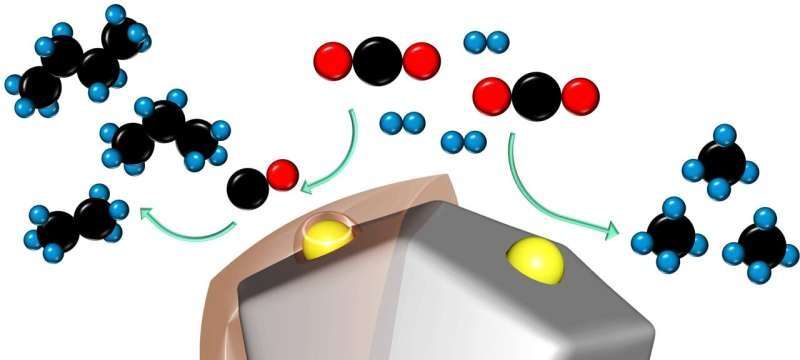Best of Last Week – Turning CO2 into gasoline, COVID variants that escape immune response, reversing memory loss

It was a good week for chemistry research as a team of engineers from Stanford University and the SLAC National Accelerator Laboratory developed a catalyst that can turn carbon dioxide into gasoline 1,000 times more efficiently than other methods, perhaps providing a way to use captured carbon. An international team of researchers discovered a mysterious transition in an electronic crystal, possibly providing a new platform for basic research on hysteretic behavior in solids over large temperature ranges. And a team at Rice University used flash Joule heating to extract rare earth elements from fly ash, bauxite residue and electronic waste.
In technology news, a combined team from École Polytechnique Fédérale de Lausanne (EPFL) and the Hitachi Cambridge Laboratory developed a CMOS-based chip that integrates silicon quantum dots and multiplexed readout electronics. And researchers at Johannes Kepler University Linz used gelatin and sugar as ink to print 3D soft robots, perhaps leading to tiny robots that can swim in the human body. Also, a group of chemical engineers at Drexel University announced that they had made a breakthrough in cathode chemistry that clears a path for commercially viable Li-S batteries. And a team at Stanford University announced the development of a new rational solvent molecule that could be used to enhance the performance of lithium metal battery electrolytes.
In other news, a team working at Massachusetts General Hospital found that most people who had a prior SARS-CoV-2 infection or who were vaccinated have a T cell immune responses against the omicron variant. And a team with members from the European Bioinformatics Institute and Instituto de Salud Carlos III identified SARS-CoV-2 variants that have the potential to escape a cellular immune response—though fortunately, they have only been modeled so far, not found in the wild.
And finally, if you are struggling with memory loss due to stroke or an aging brain, you may want to check out work done by a team at the University of Queensland. They found that the mineral selenium (found in grains and nuts) may help reverse memory loss.
© 2022 Science X Network